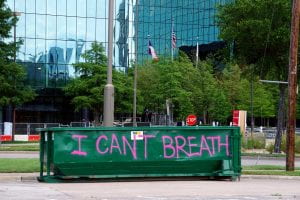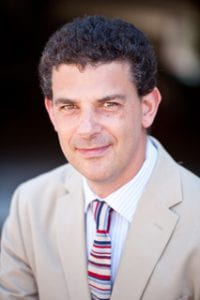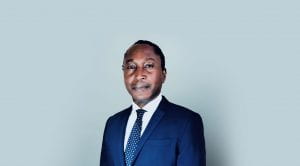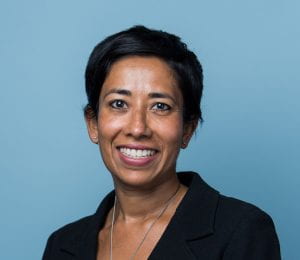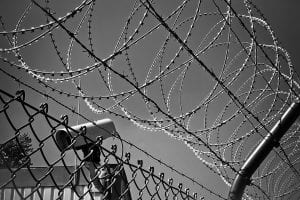The Law department is passionate about engaging our students with the major socio-political, cultural and economic questions that we face in the world today, joining forces with leading academic institutions and legal practice.
The murder of George Floyd in the US is a key moment for the pursuit of social justice, equality and the respect of human rights – cardinal values that serve as a foundation for our programme.
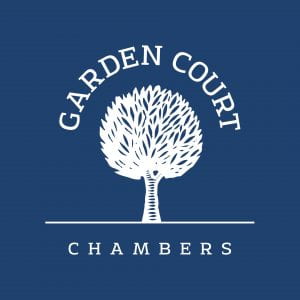 On June 25, we hosted a virtual roundtable discussion (via Zoom) on Race and Policing in the US and the UK, with eminent experts, including Leslie Thomas QC, who is currently representing 23 clients – survivors, bereaved family members and loved ones – in the Grenfell Tower inquiry.
On June 25, we hosted a virtual roundtable discussion (via Zoom) on Race and Policing in the US and the UK, with eminent experts, including Leslie Thomas QC, who is currently representing 23 clients – survivors, bereaved family members and loved ones – in the Grenfell Tower inquiry.
 The event was organised in collaboration with Garden Court Chambers and Loyola Law School (Los Angeles).
The event was organised in collaboration with Garden Court Chambers and Loyola Law School (Los Angeles).
Our academics have similarly tackled, head on, legal issues surrounding the Covid-19 pandemic.
 Our annual criminal justice symposium, which we had the privilege to co-host with Berkeley Law earlier this month, allowed us to examine the effect of Covid-19 in prisons, police stations and criminal courts in the US, and to draw comparisons with our legal system in the UK.
Our annual criminal justice symposium, which we had the privilege to co-host with Berkeley Law earlier this month, allowed us to examine the effect of Covid-19 in prisons, police stations and criminal courts in the US, and to draw comparisons with our legal system in the UK.
Similarly, our Head of Department entered in conversation with some of our distinguished Visiting Professors and other Goldsmiths partners, on Covid-19, criminal law and human rights. They put forward the right to human dignity, asking difficult questions about why the UK government was so delayed in deciding to implement the lockdown; were utilitarian interests foremost in their mind?
They predicted there will be litigation in the future, and an independent inquiry, as a response to how the UK government has failed to provide frontline workers with the right PPE.
At Goldsmiths Law, we continuously expose our students to inspirational academics, legal professionals and human rights experts that bring to life contemporary socio-legal issues. We continuously push them to come up with theory-driven answers and practical solutions.
In recent months, our students heard the director of Liberty speak to them about how we need to keep the Human Rights Act intact. They met one of Britain’s most distinguished lawyers and politicians, Helena Kennedy QC, who powerfully exposed the discrimination women experience in the British ‘justice’ system. They were introduced to the Equality Act, by one of the leading experts in the field in the UK. They engaged with climate justice from the viewpoint of resisting colonial oppression. They went on a journey, from the Nuremberg trials to the creation of the International Criminal Court, with one of our Visiting Professors, Sir Geoffrey Nice QC, who led on one of the most historic international criminal justice trials of modern times. They also explored the UK Supreme Court’s judgment on Boris Johnson’s suspension of Parliament, with the lawyers who had helped make reality this judgment!
